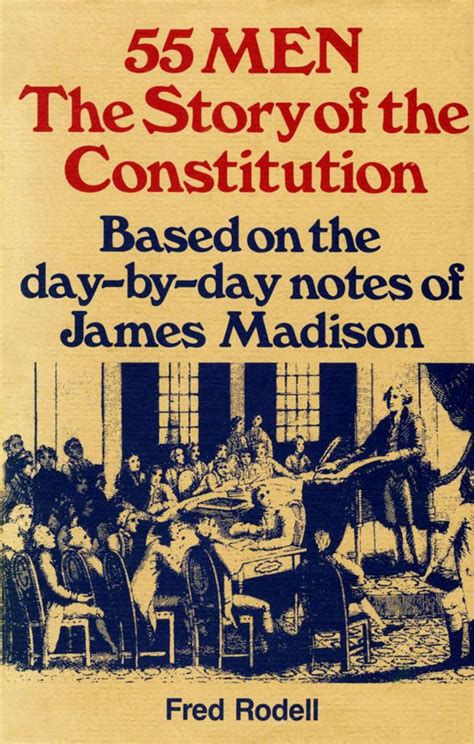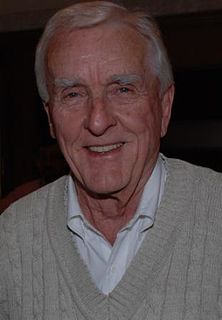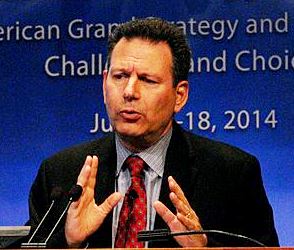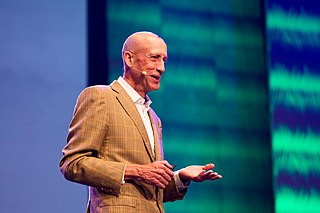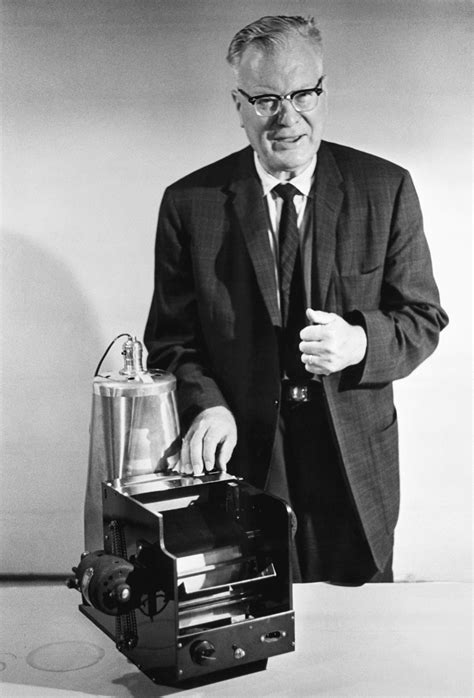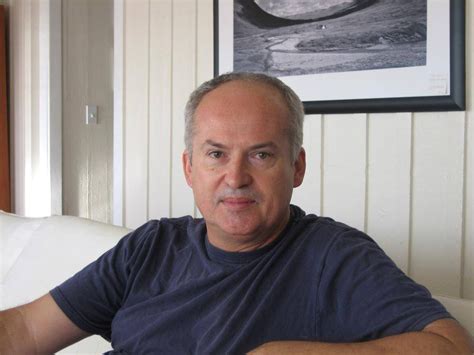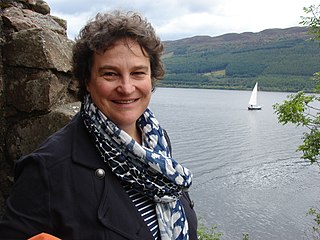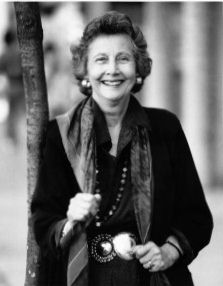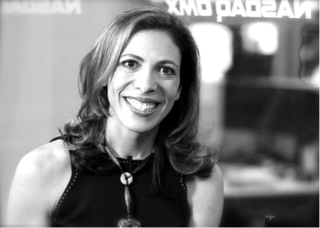Top 819 Thomas Quotes & Sayings - Page 14
Explore popular Thomas quotes.
Last updated on November 13, 2024.
We should face reality and our past mistakes in an honest, adult way. Boasting of glory does not make glory, and singing in the dark does not dispel fear. King Hussein Reason and free inquiry are the only effectual agents against error. - Thomas Jefferson We have made mistakes. In our haste to do all things for all people, we did not foresee the full consequences of our actions. And when the people raised their voices, we didn't hear. But our deafness was only a temporary condition, and not an irreversible condition.
Thomas Berry calls the Ecozoic Era, a time when we recognize the imperative of caring for the planet as a means of compassionate survival. We do not know what the outcome is going to be, but we have an opportunity to make these kinds of creative and imaginative leaps of thought and actions both locally and globally. This is completely antithetical to the direction George W. Bush is leading this nation. I do trust that the open space of democracy is ultimately the open space of our hearts and that we can follow our own leadership that carries a long-term view way beyond "four more years."
Your friends are at the house.' I sit up, straight. 'Who'? 'I don't know. Weird people. The Sullivan girl, whose father got the Gosford police to pick you up.' 'Siobhan?' 'And another one who's making cups of tea for everyone, and keeping the boy who's telling Luca fart jokes away from the girl who says he's "the last bastion of patriarchal poor taste".' 'Justine, Thomas and Tara.' And the drug fiend, Jimmy, is keeping Mia calm and the Trombal boy's rung about ten times. I don't like his manner on the phone.' 'You won't like any guy's manner on the phone.
You and I, we must carry on, Gemma. I cannot afford the luxury of love. I must marry well. And now I must look after you. It is my duty." "If you wish to suffer, you do so of your own free will, not on my behalf. Or Father's or Grandmama's or anyone's. You are a fine physician, Thomas. Why is that not enough?" "Because it isn't," he says with a rare candor. "Only this and the hope of nothing more? A quiet respectability with no true greatness or heroism in it, with only my reputation to recommend me. So you see, Gemma, you are not the only one who cannot rule her own life.
Exceptions to the traditions of dumpy dignity and fake learnedness in law review writing are as rare as they are beautiful. Once in a while a Thomas Reed Powell gets away with an imaginary judicial opinion that gives a real twist to the lion's tail. Once in a while a Thurman Arnold forgets his footnotes as though to say that if people do not believe or understand him that is their worry and not his. But even such mild breaches of etiquette as these are tolerated gingerly and seldom, and are likely to be looked at a little askance by the writers' more pious brethren.
Movement from Brenda grabbed Thomas's attention. He looked to see her drop the knife away from Minho and step back, absently wiping the small trace of blood there on her pants. "I really would've killed you, ya know," she said in a slightly scratchy voice. Almost husky. "Charge Jorge again and I'll sever an artery." Minho wiped at his small wound with his thumb, then looked at the bright red smear. "That's one sharp knife. Makes me like you more.
The word crap is actually another word that's very, very old. It was taken over from 17th century England by the pilgrim fathers and Americans were talking about things being crap in the 17th and 18th centuries. What Sir Thomas Crapper – complete coincidence – does is not invent the flushing toilet, as many, many people believe, but was a great promoter for it. He ran a business marketing other people's products and that's why his name was on them. When the American soldiers came over in the First World War, they all thought it was hilarious that it said 'crapper' on them.
As a writer, politician, scientist, and businessman, [Ben] Franklin had few equals among the educated of his day-though he left school at ten. (...)Boys like Andrew Carnegie who begged his mother not to send him to school and was well on his way to immortality and fortune at the age of thirteen, would be referred today for psychological counseling; Thomas Edison would find himself in Special Ed until his peculiar genius had been sufficiently tamed.
I don't even think any stimulants really help writing. You talk to most guys and they say, "Hey. I wrote this." And they're out of their head or they had a few beers or a bottle of whiskey. You wake up the next morning, it's usually pretty crap. But you know Dylan Thomas wrote some great poetry. Brendan Behan. You never know but ultimately I'd say you have to get up early in the morning and you're usually sober when you write your good stuff; it's hard work. So alcohol, keep it for chilling out, fun, and having a good time. Not for work.
Thomas Stanley has not only found no correlation between success in school and an ability to accumulate wealth, he's actually found a negative correlation. 'It seems that school-related evaluations are poor predictors of economic success,' Stanley concluded. What did predict success was a willingness to take risks. Yet the success-failure standards of most schools penalized risk takers. Most educational systems reward those who play it safe. As a result, those who do well in school find it hard to take risks later on.
The best part of a Mr. Goodbar is not the wrapper, is it? No, and the best part of a Coke is not the can. On those nights when you lie awake, either man or boy, wondering about yourself, peeling away one layer of oddness after another, you should remember and always be grateful that the woefully imperfect person that you are, with all your contradictions and unworthy desires, is not the best of you, any more than the wrapper is the best part of a Mr. Goodbar. -Odd Thomas - Odd Apocalypse by Dean Koonts pgs. 354-355 chapter 53
When I was 17, I made the decision to have a good attitude. I was a junior in high school; the coach said I was going to be the captain of my basketball team. I thought – that surprised me because I wasn’t the best player. John Thomas was better than me, and I was probably second or third best player. And I kept thinking, “Why am I going to be the captain?” I think everybody else was thinking that too. And the coach then answered, “The reason John is going to be the captain is he has the best attitude on the team. He encourages others, he believes we can win, he never gives up.”
I definitely notice the absence of character in most poetry, which is not so say that I'm an innovator in that regard. Character-based poems are not weird or new by any stretch but they feel strange and new because the atmosphere is one in which no one does that. People always talk about, and with good reason, poetry's unpopularity. When people say that they forget or they brush aside the fact that in the middle part of the last century poetry was immensely popular. Dylan Thomas was basically a rock star; so was Anne Sexton.
[Thomas Henry] Huxley, I believe, was the greatest Englishman of the Nineteenth Century—perhaps the greatest Englishman of all time. When one thinks of him, one thinks inevitably of such men as Goethe and Aristotle. For in him there was that rich, incomparable blend of intelligence and character, of colossal knowledge and high adventurousness, of instinctive honesty and indomitable courage which appears in mankind only once in a blue moon. There have been far greater scientists, even in England, but there has never been a scientist who was a greater man.
They were not friends, Comdrade Pillai and Inspector Thomas Matthew, and they didn't trust each other. But they understood each other perfectly. They were both men whom childhood had abandoned without a trace. Men without curiosity. Without doubt. Both in their own way truly, terrifyingly, adult. They looked out into the world and never wondered how it worked, because they knew. They worked it. They were mechanics who serviced different parts of the same machine.
An idea is only an idea if it causes unease, debate and reflection. By that standard, Thomas Homer-Dixon's concept of an 'ingenuity gap' is truly a new idea. I can think of no other new concept that so fully condenses all of the challenges we face as a human civilization than the 'ingenuity gap'. Homer-Dixon has found a way to unite all of our concerns about economics, war, population growth, complexity, etc. under a single heading. He is one of an elite group of academics who can write for a mass audience.
TECHNICALITY, n. In an English court a man named Home was tried for slander in having accused his neighbor of murder. His exact words were: "Sir Thomas Holt hath taken a cleaver and stricken his cook upon the head, so that one side of the head fell upon one shoulder and the other side upon the other shoulder." The defendant was acquitted by instruction of the court, the learned judges holding that the words did not charge murder, for they did not affirm the death of the cook, that being only an inference.
You simply cannot give to the world all that you have to give to the world if you do not remain true to your own "selfish" desires. You have a unique set of precious values that can only be fulfilled by pursuing what drives you the most: your passions and dreams. Could Thomas Edison have tended to the downtrodden as Mother Teresa did? Could Albert Einstein have preached salvation as Martin Luther King Jr. did? Could Abraham Lincoln have built cars like Henry Ford? Always, the masses benefit from the individuals who insist on marching to the beat of their own drummer.
Work outside of school hours was a necessity at an early age, and with such time as I had I turned toward interests of my own devising, making things, experimenting, and planning for the future. I had read of Thomas Alva Edison and other successful inventors, and the idea of making an invention appealed to me as one of the few available means to accomplish a change in one's economic status, while at the same time bringing to focus my interest in technical things and making it possible to make a contribution to society as well.
In Globetrotter, David Albahari explores the consciousness of emigres from the former Yugoslavia, Croatia and Serbia, showing that while abroad, many of us are even more intensely preoccupied with our histories than we were while living in Yugoslavia. His narrative structured out of realistic details and perceptions with self-conscious meditation blending history, civilization and its discontents, and personal experience reaches a density and intensity akin to Krasznahorkai's and Thomas Bernhard's. An intensely idiosyncratic narrative, enjoyable and thoughtful.
I think too much is known about me already. I think biographical information can get in the way of the reading experience. The interchange between the reader and the work. For example, I know far too much about Norman Mailer and Kurt Vonnegut. Because I know as much as I do about their personal lives, I can't read their work without this interjecting itself. So if I had it to do over, I'd probably go the way of J.D. Salinger or Thomas Pynchon. And just stay out of it altogether and let all the focus be on the work itself and not on me.
Civilization just takes it as a given that the whole world was flooding. Then science came and you had geology and modern astrophysics, and time became well understood going back billions of years. So enlightened religious people, as a necessity, had to shed the magical elements of the Bible. A little known fact is that Thomas Jefferson did just that. There's something called the Jefferson Bible. It's not widely publicized because it sort of conflicts with certain people's ideas of what the founding fathers were.
Read non-fiction. History, biology, entomology, mineralogy, paleontology. Get a bodyguard and do fieldwork. Find your inner fish. Don't publish too soon. Not before you have read Thomas Mann in any case. Learn by copying, sentence by sentence some of the masters. Copy Coetzee's or Sebald's sentences and see what happens to your story. Consider creative non-fiction if you want to stay in South Africa. It might be the way to go. Never neglect back and hamstring exercises, otherwise you won't be able to write your novel. One needs one's buttocks to think.
Sir Thomas More was a victim of injustice and irony. Generously and meekly, just as he was about to be martyred, he said: Paul . . . was present, and consented to the death of St. Stephen, and kept their clothes that stoned him to death, and yet be they [Stephen and Paul] now both twain Holy Saints in heaven, and shall continue there friends for ever, so I verily trust and . . . pray, that though your lordships have now here in earth been judges to my condemnation, we may yet hereafter in heaven merrily all meet together, to our everlasting salvation.
Henri-Georges Clouzot's cool, clammy, twisty 1955 thriller Diabolique is an almost perfect movie about a very nearly perfect murder, a film in which the artist's methods and the killers' are ideally matched, equal in cunning and in ruthlessness. The screenplay, adapted by Clouzot and three other writers from a novel by the crack French crime-fiction team of Pierre Boileau and Thomas Narcejac, is a fantastically elaborate piece of contrivance, but the scrupulous realism of the direction makes the unnatural tale somehow feel entirely likely.
Anybody hear the great news, today? Jimmy Swaggart under investigation! Oh Ja-eezus! One day every one of those cocksuckers will get caught! I understand in the case of Mr. Swaggart, that he claims that it was not multiple encounters with many prostitutes - apparently, only one sweet young thing. And he did tell Cal Thomas of the Moral Majority that the sex act itself was not fully consumated. However he did admit to doing something por-no-graphic with the girl. Let's use our imaginations, ladies and gentlemen.
All my big heroes are literary, writers. I'd love to meet Jimmy Hendrix or John Coltrane, but I'd much rather meet Thomas Wolfe, or F. Scott Fitzgerald. Words and books have always meant a lot to me. That someone can take words and string them together to where they will move me is just a hell of a thing. It's amazing to me; more amazing to me than music or painting. It's always been the written word or the spoken word, like a great lecture or a great lyric, or a great poem. To me it's just amazing. And I always aspire toward capturing that, or my version of it.
His books were part of him. Each year of his life, it seemed, his books became more and more a part of him. This room, thirty by twenty feet, and the walls of shelves filled with books, had for him the murmuring of many voices. In the books of Herodotus, Tacitus, Rabelais, Thomas Browne, John Milton, and scores of others, he had found men of face and voice more real to him than many a man he had met for a smoke and a talk.
His [Thomas Edison] method was inefficient in the extreme, for an immense ground had to be covered to get anything at all unless blind chance intervened and, at first, I was almost a sorry witness of his doings, knowing that just a little theory and calculation would have saved him 90 per cent of the labor. But he had a veritable contempt for book learning and mathematical knowledge, trusting himself entirely to his inventor's instinct and practical American sense. In view of this, the truly prodigious amount of his actual accomplishments is little short of a miracle.
Is beauty a reminder of something we once knew, with poetry one of its vehicles? Does it give us a brief vision of that 'rarely glimpsed bright face behind/ the apparency of things'? Here, I suppose, we ought to try the impossible task of defining poetry. No one definition will do. But I must admit to a liking for the words of Thomas Fuller, who said: 'Poetry is a dangerous honey. I advise thee only to taste it with the Tip of thy finger and not to live upon it. If thou do'st, it will disorder thy Head and give thee dangerous Vertigos.
As the carriage whipped forward, they passed the alley she had spent so many days staring at—it was there, and then gone as they careened around a corner, nearly knocking over a costermonger pushing a donkey cart piled high with new potatoes. Tessa screamed. Will reached past her and yanked the curtain shut. "It's better if you don't look," he told her pleasantly. "He's going to kill someone. Or get us killed." "No, he won't. Thomas is an excellent driver." Tessa glared at him. "Clearly the word excellent means something else on this side of the Atlantic.
The believer's cross is no longer any and every kind of suffering, sickness, or tension, the bearing of which is demanded. The believer's cross must be, like his Lord's, the price of his social nonconformity. It is not, like sickness or catastrophe, an inexplicable, unpredictable suffering; it is the end of the path freely chosen after counting the cost. It is not, like Luther's or Thomas Muntzer's or Zinzendorf's or Kierkegaard's cross, an inward wrestling of the sensitive soul with self and sin; it is the social reality of representing in an unwilling world the Order to come.
The New York Times columnist, Thomas Friedman, cited Haqqani to make the argument that Guantánamo must be shut down. He wrote:“Husain Haqqani, a thoughtful Pakistani scholar now teaching at Boston University, remarked to me: 'When people like myself say American values must be emulated and America is a bastion of freedom, we get Guantánamo Bay thrown in our faces. When we talk about the America of Jefferson and Hamilton, people back home say to us: 'That is not the America we are dealing with. We are dealing with the America of imprisonment without trial.'
In Tereza’s eyes, books were the emblems of a secret brotherhood. For she had but a single weapon against the world of crudity surrounding her: the novels. She had read any number of them, from Fielding to Thomas Mann. They not only offered the possibility of an imaginary escape from a life she found unsatisfying; they also had a meaning for her as physical objects: she loved to walk down the street with a book under her arm. It had the same significance for her as an elegant cane from the dandy a century ago. It differentiated her from others.
... And we talk it out. Lately, I've had Roy Thomas come in, and he sits and makes notes while we discuss it. Then he types them up, which gives us a written synopsis. Originally - I have a little tape recorder - I had tried taping it, but then I found no one on staff has time to listen to the tape again later. But this way he makes notes, types it quickly, I get a carbon, the artist gets a carbon ... so we don't have to worry that we'll forget what we've said.
When Edison first started out with his "crazy" idea for the light bulb, skeptics were unmoved. They called Thomas Edison a con man and taunted him to prove his bulb could really work. Despite the naysayers, Edison pushed on, demonstrating the importance of sticking with his "crazy" idea which would go on to turn him into one of the world's most well-known entrepreneurs. The key here is to fan the foolish fire no matter what!
St. Augustine and St. Thomas define mortal sin to be a turning away from God: that is, the turning of one's back upon God, leaving the Creator for the sake of the creature. What punishment would that subject deserve who, while his king was giving him a command, contemptuously turned his back upon him to go and transgress his orders? This is what the sinner does; and this is punished in hell with the pain of loss, that is, the loss of God, a punishment richly deserved by him who in this life turns his back upon his sovereign good.
About Thomas Hobbes: He was 40 years old before he looked on geometry; which happened accidentally. Being in a gentleman's library, Euclid's Elements lay open, and "twas the 47 El. libri I" [Pythagoras' Theorem]. He read the proposition "By God", sayd he, "this is impossible:" So he reads the demonstration of it, which referred him back to such a proposition; which proposition he read. That referred him back to another, which he also read. Et sic deinceps, that at last he was demonstratively convinced of that truth. This made him in love with geometry.
I have made a career out of arguing that we shouldn't be criminalizing political differences. I've made a career out of arguing that the grand jury is an abusive institution. I have made a career out of arguing that we shouldn't stretch and expand the criminal law. I'm not going to change it because you think these are abnormal times. When Thomas Jefferson told the Justice Department that they had to prosecute Aaron Burr, and that he was going to have the chief justice impeached unless he found Aaron Burr guilty, those were special times too.




